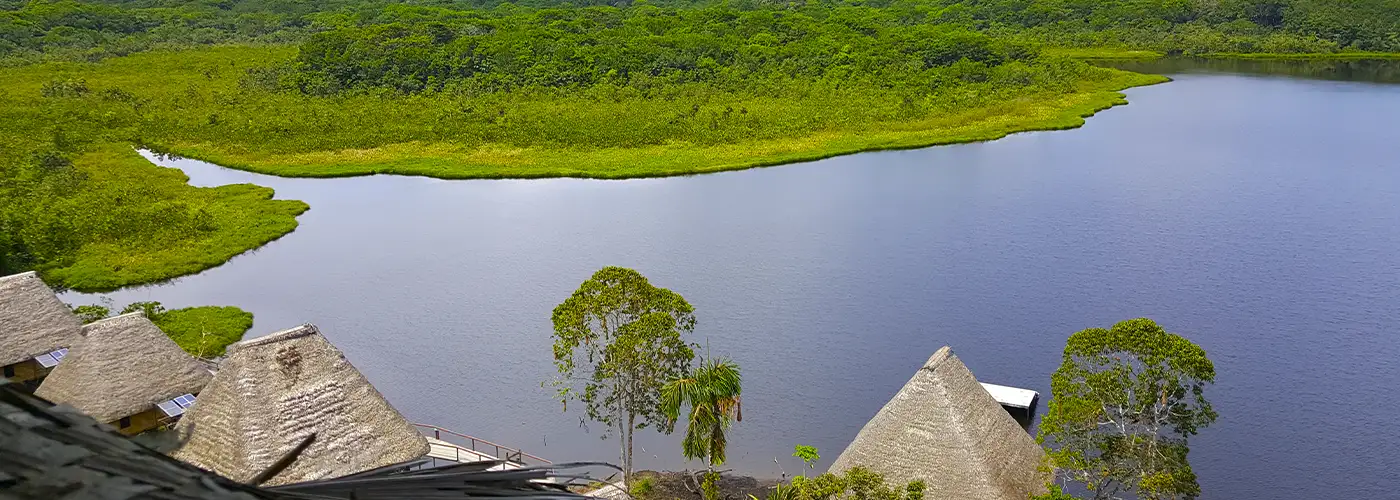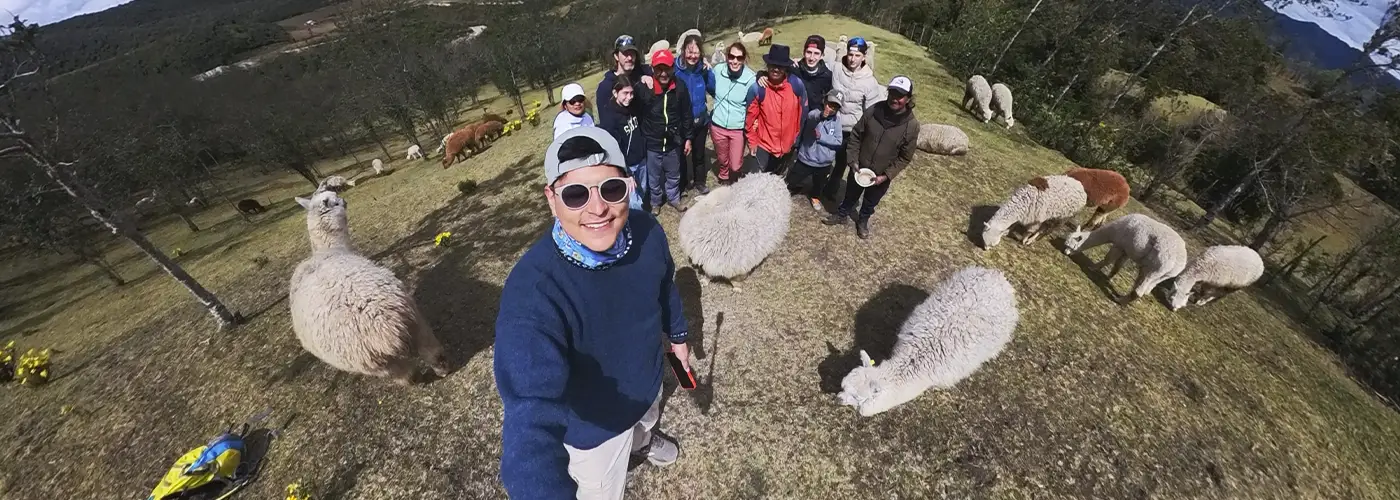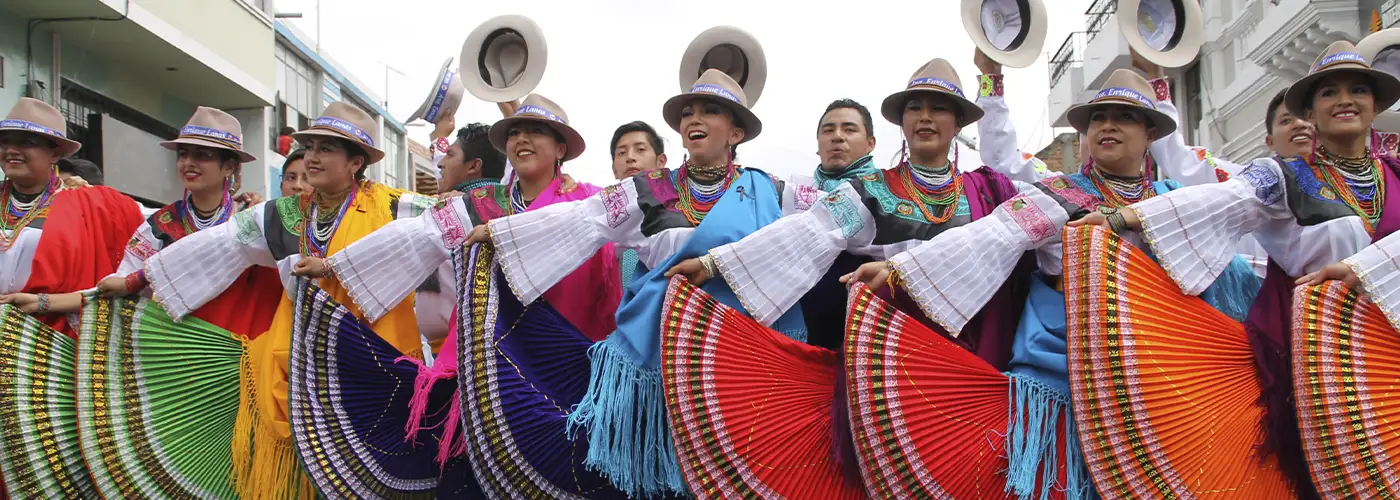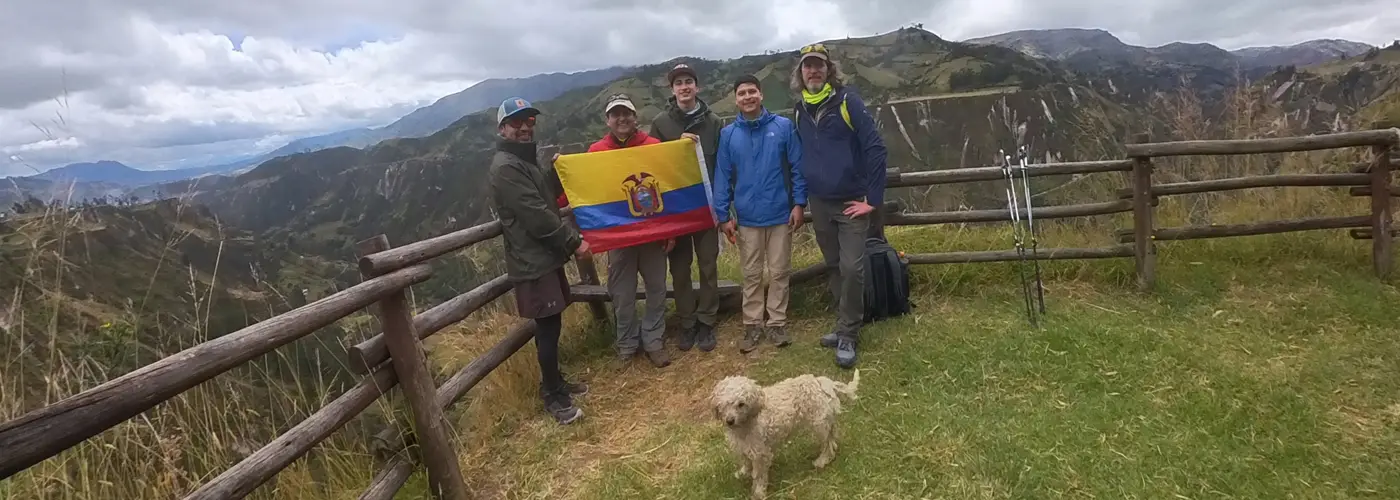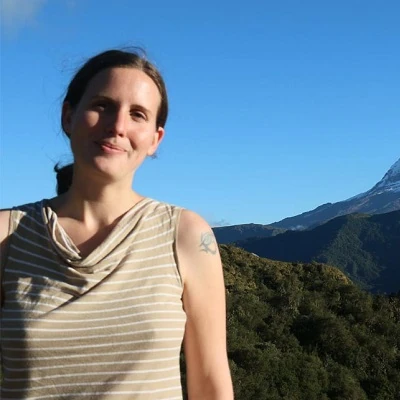
Tránsito Amaguaña was one of Ecuador’s most important indigenous leaders, who is until today remembered and honored. She was born on September 10, 1909 close to Cayambe. Her parents lived and worked on a hacienda. They worked for the owners and were additionally assigned a small piece of land to use for their own use, often on land that was not fertile or on steep hills. This was called a “huasipungo”, a commonly used system to keep the local indigenous population on the hacienda. They were forced to work seven days per week and they were paid badly, if at all.
Tránsito later remembers: “In these times, we never saw any money. Nothing. Only when we really didn’t have anything at all, they would give a little help. One year, a sack of barley; another year a sack of potatoes; another a sack of wheat. And for the women a shawl and double abuse! … for every little thing they hit, and whipped. Right there on the hacienda they had a kind of justice system, jail, they had everything. The peasants had no way of protesting.” She saw one horrible example of the constant abuse in her own family: her aunt, Patricia Amaguaña, was sentenced to death by the hacienda’s owner, because she had let a calf die.
The life of Tránsito
Tránsito started working on the hacienda when she was ten years old. Her mother made her go to school when she was nine, because she didn’t want her daughter to be an analphabet. But after only six months she left school and started working as a maid for the hacienda’s owner.
At 14, her mother made her marry an older man in order to evade rape by the men of the owner’s family. She had her first child a year later. Her husband was abusive and alcoholic, he didn’t want her going to political meetings and he killed their first son, accusing her of having had the child with another man. When she was 21 years old, she finally separated from her husband and took care of her two surviving sons.
Her political activism
Tránsito Amaguaña started her political activism at a young age. On the newly-built road that connected Quito with Ibarra, socialist activists came. In clandestine meetings, they started organizing agricultural unions. She then joined the Communist Party, in her own words because of “hunger and abuse,” which, for her, was worth the exclusion from the Catholic Church with its priests that were always on the landowners’ side.
When the unions were organized, they went to the three haciendas of the area and presented their demands to the owners:
That the salaries be raised
That the working week be only until Saturday
That the working day be only of eight hours
That the obligatory work and voluntary work (faena) be not on the same day
That the owners return the part of land (huasipungo)
That the taxes to the church and land owners be abolished
That the forced domestic labor be abolished
“And we declared ourselves on strike. And see! We didn’t go to work!” tells Tránsito later. The strike started in January 1931 and lasted until March. The landowners asked the government for help, and so the military arrived looking for the leaders. One of them was Mercedes Alba, Tránsito’s mother. She received them standing in front of her house and saw them destroy it. “The soldiers arrived. Fifty at every hacienda. They destroyed houses and arrested the leaders, tying them up and beating them.”
This year, 1931, the indigenous people tried to organize the first National Indigenous Congress, but the government sent troops to close the ways and make sure the meeting didn’t happen.
Still, with the support of the Ecuadorian unions and the pressure from the peasants, certain regulations for agricultural work were established and published in the Labor Code (1936) and a Law for the Communities (1937). Nonetheless, these regulations were hardly ever applied, thus the fight for justice continued.
From the start, women played the leading role in the movement. Especially Tránsito Amaguaña and her companion Dolores Cacuango knew how to talk to people and how to inspire them to join their cause.
Tránsito lived about 15 years in hiding. During this time she went to Quito many times, as she recalls: “By foot we went, barefoot. We used to sleep in Cayambe. From there we left at 3 am, and by noon we were in Guayllabamba. We washed our feet in a stream and went on. We slept in Calderón, and in the morning we went to the hearings. We stayed in Quito for five days, eight days, up to a month.”
In 1941, the work and struggles of the previous years led to the foundation of the Ecuadorian Indio Federation (Federación Ecuatoriana de Indios, FEI) by various indigenous leaders, supported by the Communist Party. They came to pick up Tránsito one day – she thought the people in her house wanted to force her to work for them, but they came from Quito to take her to talk before Congress. She remembers: “I yelled, first in Spanish, then in Kichwa, that the Law be just, for whites, for the rich, for the poor. That the Indios are not put on one side. That the work be the same for everybody. That we may have friendship, that we work affectionately together.”
Their accomplishments
The FEI accomplished many important things, like compensation for the houses that were destroyed years earlier, higher wages for agricultural workers, and the abolishment of forced domestic labor. The forced church tax was abolished by Tránsito talking to the Cardinal: “We went to Cardinal Carlos María de la Torre and asked him, how can the priest take away from the poor? The priest didn’t work at all and he took one row from every ten rows of planted corn or potatoes, or anything. – ‘Fine, fine, it will be voluntary’ said the Cardinal.”
For her activism, Tránsito was jailed twice, once in the 1960s when she came back from a trip to Cuba and the Soviet Union, representing Ecuadorian agricultural unions.
She kept fighting, and finally received official recognition and praise for her life’s work. In 2003, she received the “National Eugenio Espejo Prize” from the Ecuadorian Ministry of Education and Culture.
Tránsito Amaguaña died on May 10, 2009 a few months before her 100th birthday. The President of Ecuador attended her funeral. Today, several schools are named in her honor.
If you want to know more about the life in Ecuador before its independence, check out our blog post about The First Call for Independence.
Information and Quotes from: Rodas Morales, Raquel (2007). Tránsito Amaguaña: Su testimonio. Quito: COMISIÓN NACIONAL PERMANENTE DE CONMEMORACIONES CÍVICAS.




